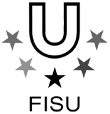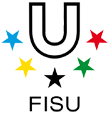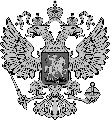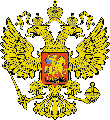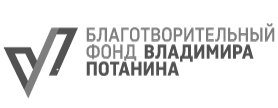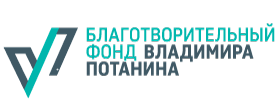Russias recent investment in sport has seen it win the right to host some of the worlds largest events in the coming years, not least the winter Olympics in 2014. As a key part of the Sochi organising committees legacy offering, the new Russian International Olympic University is putting the foundations in place to ensure that Russia will become much more than just a wealthy outpost of the global sports industry.
«A11 Games and host cities are unique," explains Professor Lev Belousov. «We cant methodically transfer the legacy of one Games to another. In this respect, every host city has a unique experience. Its not right simply to copy the experience of another host city, but you can use their experience and it can be very useful for everybody.»
The genial Russian knows a thing or two about effective Olympic legacy. As the chief executive of the Russian International Olympic University (RIOU), he is directly responsible for the implementation of one of the central planks of the Sochi Games legacy strategy, due to be rolled out in full after the Russian city hosts the winter Olympics in 2014; the driving force behind a project that will have a lasting legacy on the sports industry not only in Russia but across the world.
Conceived as an education, research and consulting platform, RIOU aims to tap into Sochis ongoing Olympic experience to spread sophisticated sports management practices across Russia, a burgeoning market for the sports industry but not necessarily one that can count on its fair share of internationally respected sports executives. Furthermore, if all goes to plan, the university will become the centre of all Olympic learning worldwide. Offering a wide variety of sports management courses, not all of them explicitly linked to the Olympics or Olympism, Belousov fully intends for the university to become an educative hub for the wider sports industry, the go-to facility not only for the Olympic family, but for sports executives and would- be executives worldwide. And while sports management courses, and even in some cases specialist sports management facilities, are springing up all over the world, RIOU will be the only specialist education platform where sports management is taught in the specific context of the Olympic Games and with the wider commercial needs of the Olympic movement firmly in mind. To underline the spirit of Olympism with which the project has been developed, the first book in the universitys library will be the first Russian translation of Coubertin, the founder of the modern-day Games and the man who crystallised the IOCs ideals.
Moreover, the first batch of full-time students at the university will be able to benefit from the ultimate Olympic If all goes to plan, the university will become the centre of all Olympic learning worldwide. internship: work placements in the build-up to and during the Sochi Games. The projects goals are undoubtedly ambitious, but with the calibre of its backers and the resources that they bring, almost certainly attainable.
A key part of the promises made by the Sochi bid team to the International Olympic Committee (IOC), which has given the project not only its blessing but its vociferously copyright protected name, RIOU was founded by the Sochi 2014 organising committee in tandem with the Russian government - specifically the ministry of sports, tourism and youth policy, the Russian Olympic Committee and Interros, a private investment group headed by oligarch Vladimir Potanin, a dedicated sports fen and one of the richest men in the world. A not-for-profit organisation, RIOU is run day to day by Belousov, whose 30 years of academic experience have largely been garnered at Moscow State University.
He reports to a supervisory board chaired by Potanin, which in turn gets input from a board of trustees that includes many of the senior IOC executive committee and is chaired by Vladimir Putin. They are illustrious taskmasters for Belousov and he could be forgiven for feeling a little overawed. Nevertheless, he is grateful for their support, and, particularly in the case of Interros and Potanin, with whom he has personally worked on a number of smaller sports projects before, their deep pockets.
«Vladimir Potanin is the head of the supervisory board became he is very much motivated by sport," he explains. «He is one of the Russian tycoons and he has already spent a lot of money in sport. The university is one of a group of Olympic buildings on which Mr Potanin is spending his own money. Hes spending something like US$2 billion on one of the biggest Olympic skiing venues as well as the university. We also have very good support from the IOC and from the organising committee. From the very beginning they were our colleagues and our interlocutors every day. They gave us all their contacts and now we have personal contacts, obviously with the IOC, but with many of the sports federations as well.»
Post-Games, RIOU will have the capacity to educate 500 full-time, live-in students, plus another 1,500 through various short- term programmes throughout any given year. But like all the best contemporary projects designed to ensure an Olympic Games delivers long-term value for sport and for its host city, effective legacy work now begins before the Games. In feet, on top of the piles of administrative work that come with setting up ао institution, The first educational programmes -were rolled out less than a year after the October 2009 launch of the project. «We do not have our campus yet," explains Belousov, «but were already teaching. It means the university is not waiting for its life to begin when the campus is built in 2013 but we are working right now.»
Those first programmes - more than ten of them in all - focused on training Sochi 2014 staff, in all manner of positions, before the build-up to the Games really got serious. Of course, an event the size of an Olympic Games requires tens of thousands of trained, event-specific staff, many of them in managerial roles, but by the time the Games begin Sochi will have hosted 76 separate test events, 29 of them international events. In addition to the Games and their lead-up events, Russia will be hosting the IAAF World Athletics Championships, the IRB Rugby World Cup Sevens, the FISU Universiade, the ПНР Ice Hockey World Championships and the Fifa World Cup in the coming years, as well as a Formula One Grand Prix annually from 2014. The need for expertise, for sheer human capital, is therefore paramount.
Professor Lev Belousov is the chief executive of the Russian International Olympic University as well as its driving force In November last year, two months after the Sochi 2014-specific programmes were implemented for the first batch of Games- time staff, Belousov and RIOU got down to work on one of their wider goals: raising the general level of understanding and expertise in sports management in Russia as a whole. «We launched training programmes for regional sports and physical culture executives," explains Belousov. «That was a very important moment for us.» Essentially, the courses are aimed at training regional governments in sports management.
In a country the size of Russia that is no simple task, as Belousov explains: «We have 83 regions in Russia. And each region has a vice governor who is responsible for sport and culture, a minister for sport and so on and so forth. There are more than 80 ministers for sport. And you have a lot of people who are responsible for the development of sport in their regions. And we collect them all in Sochi. Not all of them at once. We collect ten or 11 or 15 regions in one go and take them to Sochi for three days. We train them. Its three days of all-day seminars, and we invite two or three visiting professors to come and give lectures in sports marketing. We have simultaneous translation as well because not all of our minis:ers can speak and understand
Then after that we take them round isc show ita the Olympic venues, both - oc die coast and in the mountains sirred thar in November and well finish Qcscber this year. «Tht main dea," Belousov continues, g iboct the general objectives of the government courses but also of oeKcrsky as a whole, «is how to earn nacoerr ;n sport and in the sports industry x. zrier to шел spend this money for the of sport. This is the key idea. Tc need it to be self-generating.» As Btioesov says, visiting professors arc pfaving a key role in the execution rjocs educative courses. A system of with renowned sports courses icic around the world, including Locafeiweocgh University and Academy of Sport in the UK, is rzpicly. Although when Belousov «processors, he uses the term partly» ferric habit. There are, of course, professors of sports management, ntething close, who have made a name r r themselves in the sports industry of late Belousov is committed to attracting the best of those to come to Sochi, whether on i £ ring visit or something more permanent.
Nevertheless, many of the visiting «professors» are and will be key executives ггост «ithin the sports industry. «Weve iready had professors from Canada, from Great Britain, from Germany, from Austria and from Spain," says Belousov. «Weve also had top managers in the Olympic movement For example, we have very close relations with the International Ice Hockey Federation whose president, Rene Fasel, has already been twice, and Horst Lichtner, the director general, has come once before and will come again in October.
So our stars are not only from the educational sphere and the universities, but even from the international federations, from the Olympic family. And they are top managers and theyre bringing Weve already had professors from Canada, from Great Britain, from Germany, from Austria and from Spain.» Their experience and thats very important for us.» Of course, Sochi, a coastal city of just over 300,000 people, was not renowned as either a centre of sports or an education hub before the decision was made to take the 2014 Olympics there. Indeed, a large part of the motivation behind the bid lay in the transformative power of the Games; the 2014 Olympics, and all the human, infrastructural and ideological investment that will go with it, will enrich the region. Part of the enrichment process will be in the gradual influx of top-level talent, both sporting and executive, to the region. It is a process that Belousov is currently in the midst of executing, and it is a process that starts with number one.
A born and bred Muscovite, Belousov currently splits his time between Sochi, where he is encouraged on each visit to see the progress being made with the construction of the university campus, and his current Moscow headquarters. As head of the modern and contemporary western European and American history department at Moscow State University, and an enthusiastic player in the university soccer team, Belousov is embedded in Moscows cultural fabric.
He hopes, however, that his own commitment to the project, and to the Olympic movement in general, will serve as encouragement to others, many of them personal contacts, weighing up the decision to be part of the project and relocate to Sochi. «For me, its a real challenge because I have to create a very professional staff, but they have to transfer to Sochi. This is difficult because people obviously teach and learn and live in different places. We have to create a system of carrots to persuade people to transfer to Sochi. But I think we will have around 40 per cent of the total staff not on permanent, but on temporary basis. I think well have more than 100 in total, for sure with visiting professors.» With RIOUs initial curriculum offering, focusing on five key areas of events, venues, careers, media and governance, being prepared for its presentation at next summers Games in London, Belousov is quickly seeing his own Olympic dream become a reality.























































